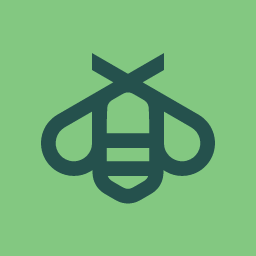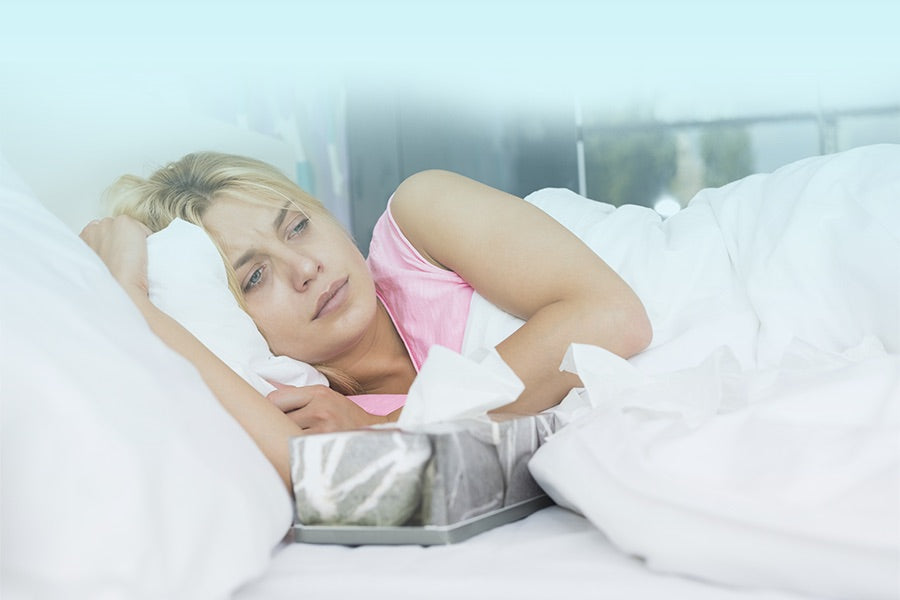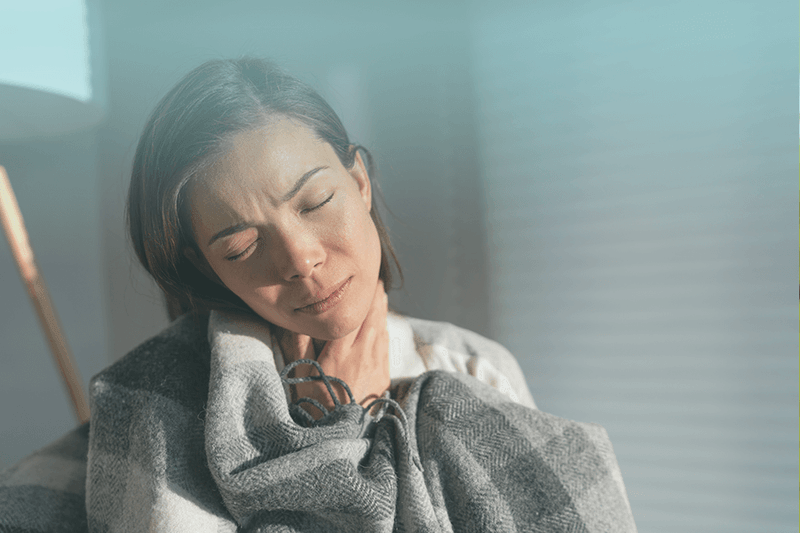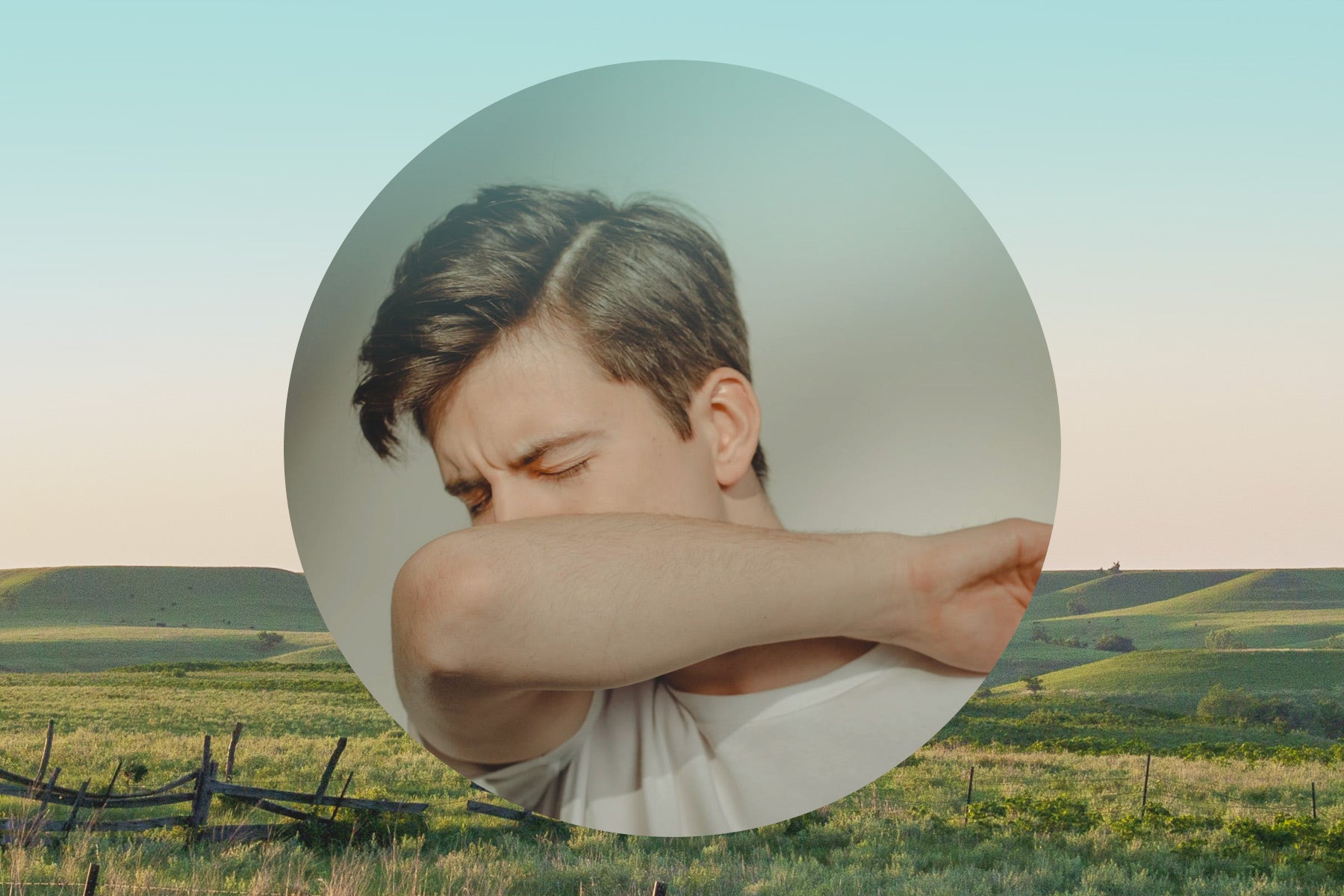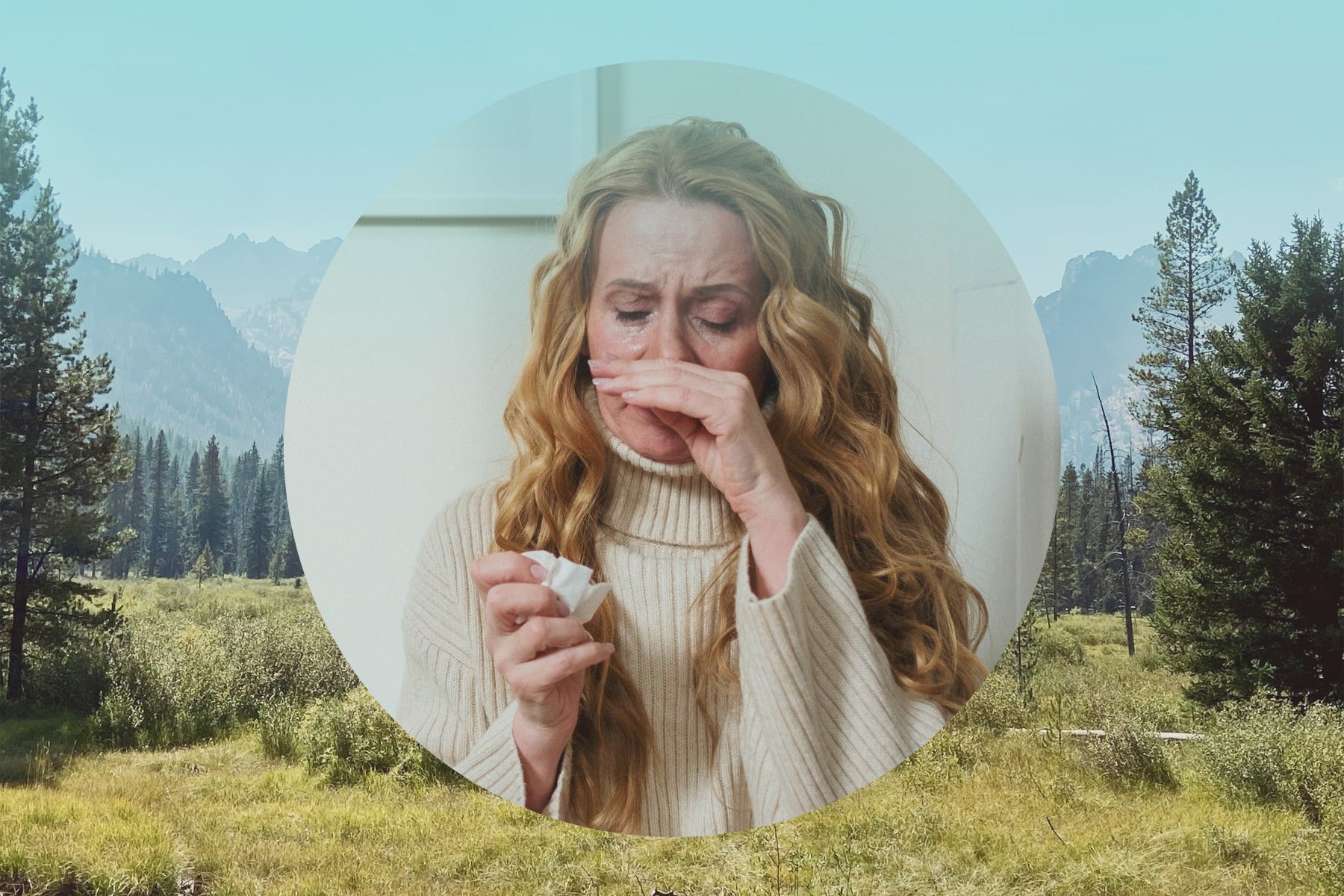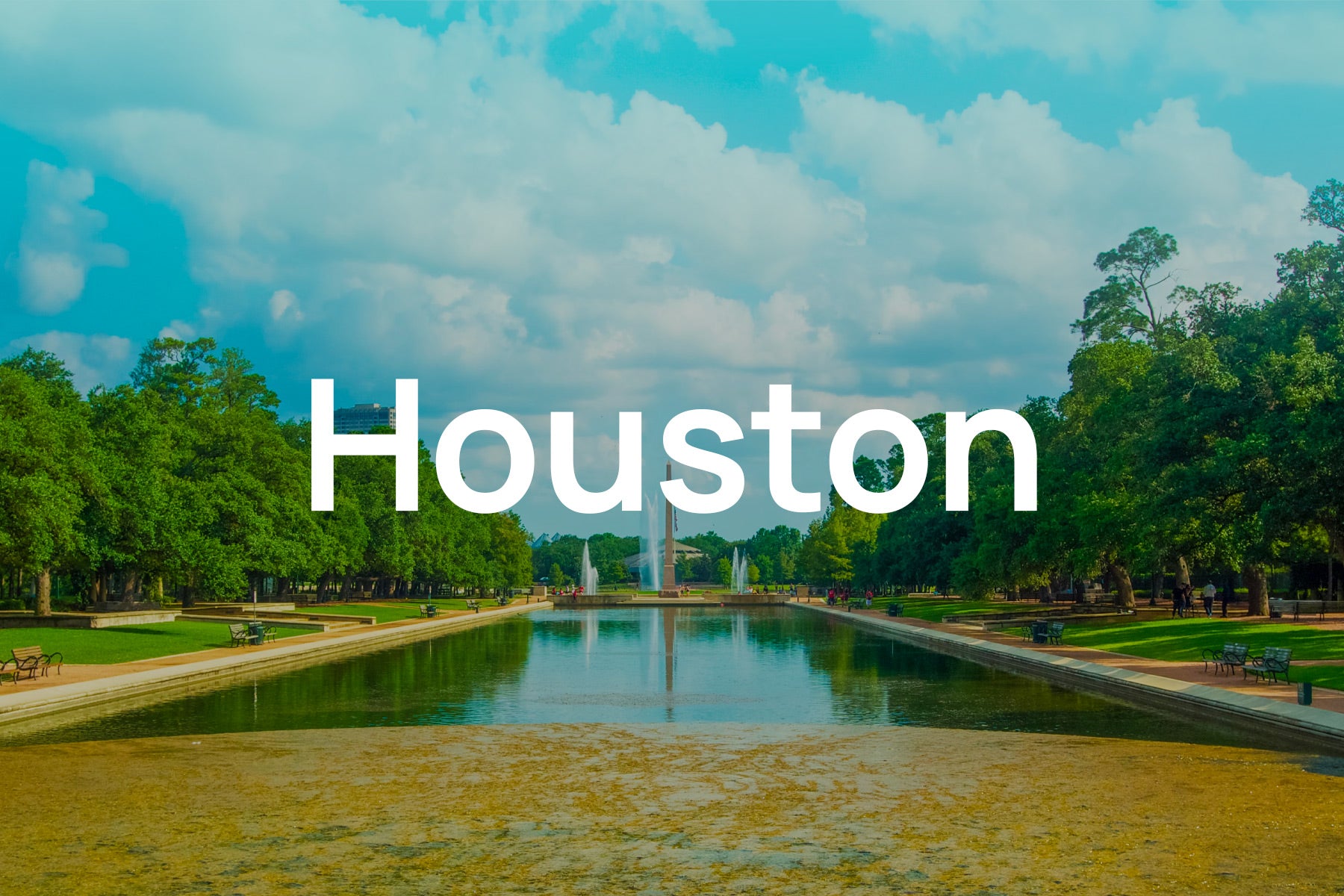
What You Don’t Know About Pollen Allergies in Houston
From mold-borne humidity to dry windy stretches, the weather of Houston, Texas, can be a complicated matter for seasonal allergy sufferers. If you’re prone to pollen allergies in “The Bayou City,” don’t fret! Learn everything you’ve been missing today.
What Causes Pollen Allergies in Houston?
When most people think of Houston, they imagine vibrant manufacturing and energy sectors, favorable weather, top-notch educational institutions, and varied, affordable housing options. That is to say, a whole lot of good things.
What many people may fail to recognize, however, is Houston’s seasonal plight. Depending on your sensitivities, the weather patterns, and overall climate trends, this Southeastern Texas city may pack quite the punch.
Ranked among the top 20 worst cities in the country for pollen allergies, Houston can quickly trigger allergic reactions. The effects can vary widely. Whether it’s stuffy and runny noses due to ragweed, throbbing headaches and fatigue from Cedar trees, or coughing and sneezing due to summer grasses, the allergies of Houston, Texas, run the gamut.
Are you experiencing symptoms of pollen allergies in Houston?
With the right knowledge, a practical approach, and the guidance of a seasoned healthcare provider, you can begin addressing your allergies immediately.

Putting Houston’s Pollen Allergies in Perspective
If your rearview mirror is powdered with yellow, it’s time to roll up the windows! When pollen counts soar in and around the Houston metro area, the first thing you should do is take cover. According to the Asthma and Allergy Foundation of America (AAFA), “The Bayou City” ranks #12 in the country out of the top 100 cities.
And not in a good way.
Drawing upon extensive research and data, the AAFA has released its 2023 list of the worst (and best) cities for allergy sufferers. Unfortunately for Houston residents and visitors, this hotspot city leaves a lot to be desired. Across the three types of pollen, Houston ranks 12th worst for tree pollen, 10th worst for grass pollen, and 59th worst for weed pollen.
The AAFA also rates cities in terms of medication use and access to certified specialists. With its overall ranking of #12, Houston scores ratings of “Worse Than Average” for All Pollen, “Average” for Medication Use, and “Average” for specialists.
How Pollen Allergies in Houston Are Quantified
Now, these AAFA ratings and rankings may sound interesting - or alarming - but what do they mean, exactly? If you’re wondering how these subtotals and designations are determined, it’s all based on particulate sensors.
These Pollen Sense, LLC Automated Particulate Sensors (APS) can determine both the pollen species in the air and the counts for each species on a given day. From there, the AAFA can group each daily count according to the National Allergy Bureau’s categories. For the worst pollen offenders, these typically include levels of “very high” or “high” across seasons.
Meanwhile, the categories of medication use and specialist access are based on sales-per-patient and board-certified-allergists-per-patient data, respectively. Together, the pollen, medication, and specialist data paint a pretty clear picture of cities that are “Worse Than Average,” “Average,” and “Better Than Average.”
With its overall ranking of #12, the city of Houston receives a sum designation of “Worse Than Average.” Of course, all of these rankings, ratings, and fancy designations mean very little, depending on your sensitivities. When it comes to pollen allergies in Houston, ‘allergy season’ is only as bad - or good - as the person experiencing it.
That’s why understanding your seasonal pollen allergies is so crucial. With a keen focus on the worst months and seasons for your symptoms, you can begin to prevent, treat, and perhaps even eradicate your allergies for good.
When Are Pollen Allergies in Houston The Worst?
This question is like asking, when are people the most sick with the flu or a cold? While the answer may follow historical trends and periods, everybody is different. The reason every person is different is because every immune system is different. You also have to factor in unexpected weather patterns, such as droughts and downpours, as well as overall climate factors, such as pollution and greenhouse emissions.
Your healthcare provider can help you navigate the ebbs and flows of your unique seasonal pollen allergies.
That said, you can still follow general guidelines when it comes to living in Houston. With tree allergies most prevalent in the winter and spring, grass in the summer, and weed in the autumn, knowing your triggers is critical.
Houston’s Pollen Seasons Vary By Allergen
Unsure which allergen is triggering your stuffy nose, itchy eyes, headache, cough, or anything else? Fortunately, pinpointing your particular allergen sensitivities doesn’t have to be difficult. With a simple test, you can find the precise allergen affecting you.
Typically, Houston tree pollen begins propagating in December or January, with its highest concentrations often arriving in March. Allergic to trees? Then you should keep a special eye out for Cedar Elm, Ash, Pecan, Oak, Alder, Mulberry, and Pine. These allergies can extend through September but may vary widely from person to person.
Meanwhile, grass pollen counts in Houston can start up as early as March and march all the way to their peak around July before tapering off. Be on the lookout for Timothy, Bahia, Bermuda, Sweet Vernal, and Red Top. You should also note certain tree species, such as Junipers, Birches, and Box Elders, which can trigger a full range of symptoms throughout the spring.
Once fall settles in and the leaves have changed, you can expect ragweed pollen to start peaking. Although weed pollen allergies in Houston are the city’s lowest-ranked, that doesn’t mean they’re not problematic.
As always, speak with an allergy specialist for a proper diagnosis and treatment plan.
How Rain and Drought Affect Pollen Allergies in Houston
While most people think of rain as being good for allergies, the truth is a little more complex. Yes, rain can indeed ‘clear the air’ of pesky pollen spores, reducing your allergies. But rain can also cause larger clumps to break up, freeing smaller grains for circulation once the rain has passed.
Rain is also a catalyst for plant growth.
Generally, the city of Houston will experience cycles of droughts and rainy seasons. Many allergy sufferers may enjoy a drop off in symptoms during droughts because plants haven’t had a chance to grow well. When the rain returns, however, this ‘rebound’ effect can trigger accelerated plant growth, thereby increasing pollen in the air. Mold may also fester, loving Houston’s moist, tropical conditions.
Together, these weather patterns and precipitation changes can trigger pollen allergies well beyond and before typical ‘seasonal’ symptoms are expected. Recognizing these area and regional fluctuations ahead of time can make a world of difference!
When Are Bad Pollen Allergies Too Bad?
Now, you may be asking yourself, are my allergies normal? Is this something I can manage on my own, or should I be speaking to a specialist?
While it’s always recommended that you consult your healthcare provider first, there are certain things to look out for as pollen season takes hold. Whether you’re just slightly allergic to certain kinds of grass or heavily symptomatic from seemingly everything, you should always track your symptoms.
Here are some ways to know if your pollen allergies in Houston are severe:
Heavy Congestion
We all know how annoying nasal congestion can be. You’re clogged up, your voice sounds funny, and you feel like you can only half-breathe. When this congestion gets bad, however, is when it impacts daily activities. If you start feeling like it’s really hard to get airflow, and you can’t sleep at night, you should consult an allergist or physician.
Are common treatments like sprays, water spouts, and decongestants only working temporarily or not at all? Then definitely speak to an expert.
Continuous Sneezing
We all sneeze from time to time. Sometimes, we get a tickle in our nose from an allergen or irritant and we let one go. Other times, sneezing is intermittent and a nuisance. And then there are times when we’re constantly and uncontrollably sneezing. So much so, that it actually tires us out and causes discomfort and pain.
Don’t let it get to this point! If common treatments aren’t helping your pollen allergies, seek a specialist.
Ongoing Sinusitis
Sinuses are basically open spaces in your head connected by thin passages. Now normally, these sinuses allow us to drain mucus to keep our nose clear and pathogen-free. Unfortunately, pollen allergies in Houston can trigger chronic issues that cause sinusitis. With this inflammation of the tissues, you may notice pain and tenderness, discolored mucus, headaches, stuffy nose, and even a fever. Speak to a medical professional right away if your sinus issues become chronic.
Itchy or Watery Eyes
Red, scratchy, watery, goopy eyes are nothing new to many allergy sufferers. However, taking chances with Houston pollen allergies that affect your eyes is ill-advised. If your allergic reactions make it hard to see, focus, or do normal activities, definitely speak to a doctor. The last thing you want is to be half-blind driving around and get in an accident!
When your eye lining becomes inflamed due to allergies, this is called allergic conjunctivitis. According to the Centers for Disease Control and Prevention (CDC), some 30% of the general population experiences this condition.
Tired of recurring and life-disrupting symptoms? Whatever you do, don’t become overly reliant on medications. Oftentimes, allergy sufferers use over-the-counter allergy medications as ‘quick fixes.’ While these may help in the short term, eventually our bodies may stop responding adequately. Other remedies - such as DIY tonics - may only help marginally or inconsistently.
As always, contact your healthcare provider for a proper diagnosis and treatment protocol that best meets your needs.
How Pollen Allergies in Houston Are Changing
Like it or not, evidence indicates that pollen allergies and seasonal reactions are becoming worse across the world. Although the reasons for this are multiple and complex, many experts attribute worse and longer allergies to climate factors.
Although pollen is more concentrated in the air during warmer periods, you can never discount perennial pollinators or plants that pollinate all year.
With climate change reducing frost, experts warn, air temperatures continue to increase as carbon dioxide accumulates in our atmospheres.
Concerned about worsening pollen allergies in Houston?
The CDC notes the following six changes we can expect to seasonal pollen allergies:
- Starting and ending points of pollen season(s)
- Duration of pollen season(s)
- Volume of pollen production
- Volume of circulating pollen
- Exposure risk of circulating pollen
- Risk of allergic reaction(s) and symptom(s)
Overall, the risk of pollen allergies may depend on the individual. Your unique bodily constitution and lifestyle choices can make or break those pesky Houston allergens! If you are susceptible to, for instance, Oak or Pecan trees, you may have more trouble during the springtime.
If you’re more at risk due to grasses like Sweet Vernal and Bahia, exercise caution during the summer. It all depends on your unique immune system and the weather and climate factors that affect it.
As always, speak with a medical professional and practice smart and consistent hygiene. Avoid outdoor activities on high-count days, clean your home and car frequently, and keep your air filters in top shape. Practice good hygiene, change clothes, shower regularly, and be mindful of pets that may track in pollen as well.
With a healthy, proactive approach, a little luck, and proper treatments if necessary, you can reduce your pollen allergies in Houston significantly.
A Solution to Houston Allergies That Lasts?
Your pollen allergies in Texas are no joke. Even if you find them just mildly irritating, there’s no reason to settle for feeling subpar. What if there was a way to forego the typical, short-lived OTC meds and remedies, and actually achieve a lifetime of symptom-free living?
At Quello, our antigen-targeted allergy drops are designed to help patients with all kinds of seasonal pollen allergies. Our sublingual drops also help individuals deal with year-round allergens, such as mold, dust mites, pet dander, and even cockroaches.
All we require is a simple blood sample, which can be done at home at your own convenience. Using our FREE in-home test kit, you provide the sample, mail it to our lab, and our specialists create personalized allergy drops right for you.
Note: Although some research supports the efficacy of sublingual immunotherapy, allergy drops are not right for everyone. Consult your healthcare provider with any questions/concerns about proper diagnosis and treatment.

FAQ
How Long Is Houston Allergy Season?
Pollen allergies in Houston will vary significantly between individuals. Depending on your unique sensitivities to certain kinds of pollen, you may experience anything from mild, sporadic decongestion to chronic conditions like ‘hay fever’ or sinusitis. That said, peak pollen seasons in Houston may range from winter to spring for trees, spring through summer for grasses, and late summer through fall for weeds. Because of Houston’s warmer climate, allergy seasons may last longer than in other regions.
Is Houston Worse Than Other Cities for Pollen?
According to the Asthma and Allergy Foundation of America (AAFA), the city of Houston, Texas, ranks #12 in the country among the worst metro areas for pollen allergy sufferers. This ranking also factors in the availability of board-certified allergists and the prevalence of over-the-counter medication use. While Houston may pose issues for some allergy sufferers, everyone is different, and seasons, regions, and pollen counts can fluctuate widely. Not to mention, some people may struggle with non-pollen allergies, which this ranking does not include.
Will Allergy Drops Get Rid of Pollen Allergies?
Typically, allergy drop immunotherapy is allergen-specific. This means each formula is tailored to the exact allergen(s) - such as Bermuda grass - triggering your symptoms. This targeted treatment may make allergy drops more effective than generic medications commonly found in drugstores. However, as with any treatment, allergy drops are not for everyone and may not be effective for everyone.
Thinking about giving immunotherapy a try? Speak to one of our experts today.
Overcome your allergies at home with our doctor-led therapy.
Get started with our free allergy test kitGet Started with no test needed.
Overcome your allergies at home with our doctor-led therapy.
Get started with our free allergy test kitGet Started with no test needed.
